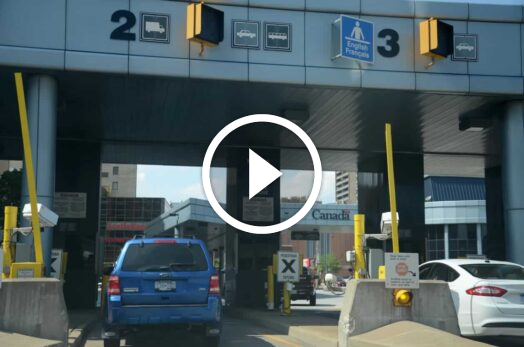

Visa Guides: Dealing with Lengthy Processing Times and What to Expect. Navigating the intricacies of visa applications can be challenging, particularly when processing times stretch into unforeseen delays. Understanding these potential delays and preparing for them can make the process less stressful. This comprehensive guide will explore common causes for lengthy processing, strategies to prepare, and what to expect during the application period. We will also offer insightful advice on how to effectively manage the potential stress and complexities that often arise. This guide will cover numerous facets of visa application procedures, from initial preparation to final processing.
Understanding the Potential for Visa Delays
Common Causes of Processing Time Extrema
Visa applications often experience delays due to various reasons, from administrative issues and high application volumes to discrepancies in the applicant’s documents and processing backlogs at the embassy or consulate. These delays can affect individuals planning international travel and business ventures, impacting their plans. Understanding the common factors contributing to visa processing delays is crucial for applicants to adequately prepare.
Examining Documentation & Application Accuracy
Accuracy and completeness in the documentation submitted are vital for a seamless and swift application process. Inaccuracies, incomplete documents, or missing information can trigger review requests or delays. Applicants should meticulously check the requirements and ensure all needed documents are furnished correctly and are current. Double-checking for formatting errors, typos, or any other inconsistencies is just as important as completeness. A well-prepared application minimizes the chances of issues that could slow down the processing time.
External Factors that Affect Processing Speed
External factors can significantly affect the speed of visa processing. Political situations, administrative issues, or even seasonal fluctuations in application volume can lead to unexpected delays. Staying informed about any updates, announcements, or procedural changes issued by the relevant authorities is crucial for staying informed. Understanding these factors can help minimize the impact on your overall application.
Strategies to Prepare for Delays
Proactive Communication and Documentation Management
Proactive communication with the embassy or consulate throughout the application process is essential, especially when faced with extended processing times. This includes staying abreast of any updates or changes in procedures. Maintaining meticulous records of all interactions and correspondence regarding your application is a crucial step in handling potential issues. Maintaining organized documentation helps to keep track of the status and ensure nothing is overlooked.
Budgeting Time for Processing
Budgeting ample time for potential delays is critical when dealing with visa applications. It’s crucial to factor in unexpected circumstances that may cause a slowdown. This proactive approach allows for flexibility and minimizes stress. Consider incorporating buffer time into your travel plans, so you can adjust if necessary.
Utilizing Online Tracking Tools and Resources
Many embassies and consulates provide online portals for tracking visa application statuses. These resources can provide important updates about your application and inform you of potential processing delays. Applicants should make use of these tools for the latest updates and avoid potential uncertainties.
Understanding Processing Time Expectations
Considering the Visa Type and Country
The type of visa you apply for and the specific country issuing the visa directly impact the processing time. Some visa types, like student visas or work visas, may have longer processing times than tourist visas. Additionally, each country’s specific guidelines and procedures can differ, so it is crucial to research the specific requirements of the country you plan to visit.
Examining Past Processing Time Statistics
If available, consult statistics and data on average processing times for your specific visa type and country. This information can give you a realistic expectation of how long your application might take. Looking at past trends provides valuable context and assists in budgeting your time accordingly.
Recognizing Factors that Influence Visa Approval or Rejection
Various factors can influence the approval or rejection of a visa application, such as the applicant’s travel history, the clarity of purpose of travel, and the submitted supporting documentation. Applicants should ensure all required information is accurate and clearly reflects the reasons for their travel intentions.
Mitigating Stress and Uncertainty
Staying Organized and Informed
Maintaining an organized system for managing your application materials is vital for navigating potential delays. This includes keeping track of deadlines, correspondence, and submitted documents. Staying informed about any changes or updates regarding the application process or potential issues will help you to proactively address potential roadblocks.
Seeking Guidance from Experienced Professionals
Consulting with an experienced immigration consultant can be a great way to address concerns about visa processing delays. They have knowledge and insight into the complexities and subtleties of visa procedures, allowing for a greater understanding of the factors influencing the timeline of the application. Their experience and understanding can ease your anxiety and offer strategies for navigating the process.
Maintaining a Positive and Realistic Outlook
Maintaining a realistic outlook and avoiding unnecessary stress is crucial during the application process. Keeping track of the relevant timelines, expectations, and resources can significantly reduce pressure. Understanding the potential delays can alleviate stress and maintain a proactive approach.
Communicating with the Embassy/Consulate Effectively
Understanding Communication Channels and Protocols
Understanding the appropriate communication channels and protocols when dealing with the embassy or consulate is critical. Familiarizing yourself with their communication channels and procedures can help you to maintain consistent contact and reduce confusion. This will help your application progress smoothly.
Proactive Communication about Delays or Concerns
If you encounter delays or have concerns about your application, communicating with the appropriate embassy or consulate representatives is necessary. This proactive approach ensures clear communication and appropriate action from the authorities involved.
Understanding Response Times and Follow-Up Procedures
Understanding the response times and follow-up procedures of the embassy or consulate can help you to manage your expectations regarding the outcome of your visa application. Proactive communication, including inquiries and requests for updates, can facilitate timely communication.
Conclusion
This guide offers a structured and comprehensive look at Visa Guides, providing insights into the complexities of dealing with lengthy processing times. We’ve explored common causes of delays, strategies to prepare, and expectations associated with each step of the application process. It’s crucial to remember that preparation and awareness can significantly reduce the impact of delays and increase the chances of a smooth application. Remember to stay informed and maintain constant communication with the appropriate embassy or consulate.
Frequently Asked Questions on Visa Processing Times:
Q: What are some common reasons for visa processing delays?
A: Visa processing times can be impacted by various factors, including high application volume, insufficient documentation, discrepancies in the application, or backlogs at the relevant embassy or consulate. Additionally, unforeseen circumstances, such as administrative issues or political situations, can also lead to delays. Each country’s specific criteria and requirements can differ, contributing to the variation in processing times.
Q: How can I track my visa application status and prepare for potential delays?
A: Most embassies and consulates offer online portals for tracking visa application statuses. Staying organized, ensuring all supporting documents are complete and accurate, and proactively reaching out to the embassy or consulate to check on the status of your application are crucial for timely updates and mitigating delays. Furthermore, understanding the process timelines can help to plan ahead and anticipate potential challenges.
Q: What resources are available to help manage the stress of a lengthy visa process?
A: Managing stress during a lengthy visa process can be achieved through proactive planning, such as budgeting time and resources for the potential delays. Seeking advice from experienced immigration consultants can offer personalized strategies for navigating the complexity of the application. Leveraging online resources and connecting with support groups can provide invaluable insight and aid in the process.
In conclusion, navigating lengthy visa processing times requires meticulous planning, proactive communication, and a deep understanding of the specific visa application process. By being prepared, understanding potential delays, and staying informed, you can significantly increase your chances of a successful visa application. Contact a qualified immigration consultant if you need expert guidance to navigate these complexities. Their professional insight and experience can alleviate much of the stress and uncertainty of the process.